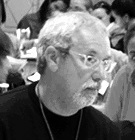In a previous post, we invited Julia Rugg, WINGS For Kids’ Chief Strategy Officer, to serve as a guest blogger. We featured WINGS because of their afterschool focus on SEL skills and their recent expansion to Pomona Unified School District. Below, we offer part two of her two-part post, which focuses on the program strategies they employ to promote SEL.
What WINGS Looks Like
By Julia Rugg
 |
| Julia Rugg |
Our staff first explicitly teach, then model and reinforce, social-emotional skills. Kids learn, then practice and discuss, the new skills through program activities. Let’s use one of our objectives in the self-management competency—helping kids focus their attention inward in order to limit outward distraction—as an example.
The WINGS day begins with Community Unity, the coming together of all staff and kids in grades K-5, for announcements, a nutritious snack, recital of the WINGS Creed, and a social-emotional skill-building lesson. This part of the day offers an opportunity to talk in a focused and active way about the week’s objective and engage in a brief, fun activity that relates to it. This week, WINGS Leaders lead an exercise on active breathing, and the program director starts a focused large-group discussion and asks staff and kids to share examples of when they have gotten distracted.
Next is Choice Time, an enrichment activity that students select each semester and where social-emotional lessons are woven in. Our flexible afterschool schedule provides ample time for both structured academic support and kid-driven enrichment and activity time.
During a kickball game, for example, a WINGS Leader might talk about how to concentrate on breathing while kicking the ball and ignore the shouts from the sidelines to better focus on the game. This also gives kids the chance to continue practicing other skills they’ve previously learned, such as sharing supportive comments after a bad kick and keeping a positive attitude even if their team is losing. In this way, Choice Time encourages kids to engage in active and explicit learning to applying both new and recently developed skills to settings other than the classroom.
Choice Time is followed by Academic Center, where students work on homework with help from program staff. In addition to providing assistance and encouragement in a positive atmosphere, WINGS Leaders capitalize on teachable moments to keep bringing kids back to the week’s learning objective. In this case, they might work with students to practice positioning their bodies in their desks so they are less likely to be distracted, explicitly defining the skills being learned.
—————————
Julia Rugg is the Chief Strategy Officer at WINGS for Kids. Since July 2011 she has launched WINGS’ expansion efforts across the southeast with the CEO, and worked alongside the senior team to ensure the WINGS model has been replicated with fidelity and quality. She evaluates current and future growth opportunities for WINGS, develops partner relationships, and builds the necessary internal infrastructure and resources necessary to support growth.














